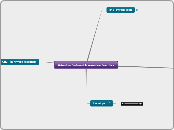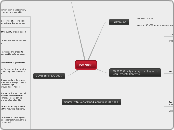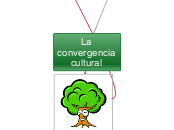Networking Fundamentals Knowledage Base- Noor
CH2 - hardware essentials
router
hub and switch connect CPU to LAN/ raouter connect LANs
enable LANs communicate b/t 1 another
NIC
convert frames into signals
recieve packets
recieve signals and frames
provide connection
Access point
similar to hubs
use for wireless communications
switches
half duplex or full duplex
then update the source with the new address
then forward the frame to it
then look up the destenation
then read the destenation
first recieve frame
dedicated bandwidth
Homework 3
Classroom2
study cases 1,2,3
case 2-1
Since the most important thing that I care about in this network is speed, it is better to use a Switch as an interconnect device, because it has dedicated bandwidth in which all computer have the same amount of bandwidth as the overall bandwidth, unlike hubs in which the bandwidth is shared.
case 2-2
We can use a router, that will work as a messenger that allow communication between LANs, yet it won't forward the message.
case 2-3
1. logical topology is how devices appear to connect with the user, while physical topology is how these devices are connected between one another ( the wires and cables ).
2. bus is a network architecture, it is one type of topology in which the clients are connected by a line cable.
3. star topology is the most common topology, it has a central switch or hub that is connected to the other CPUs.
4. ring topology is a type of topology in which the all devices are connected to one another by a cable that goes in a circle just like a ring.
5. Ethernet and CSMA/CD: Ethernet is a computer network technology that is used for Local Area Networks. / it is a Media Access Control method that use a carrier sense schema, and transmitting data and except it if it was a signal, and refuse it if it was a frame.
traditional repeater
has 2 ports
Multirepeater
called hub
half duplex only
bandwidth sharing
then transmits signals
then regenrates signal
then Clean signals
first recieve signals
four ports
Exam1 part B
jpg
ch1- introduction
Client/ server
Client. server/ sofware
Client/Server computer
Client/ server operating system
Packet/ farmes
Types of networks
WAN
MAN
internetworks
LAN+ raouter+LAN
LAN
Layer of Network communication
network interface
network protocol
network software
User applicaton
Steps of Network Commuinction
Multitasking
Personal Computer components
BIOS/ CMOS
RAM
Hard drive
Motherboard
Storage components
Long-term/ LIke DVE...
Short-term/ Ram
Basic functions
Output
Processing
Input









